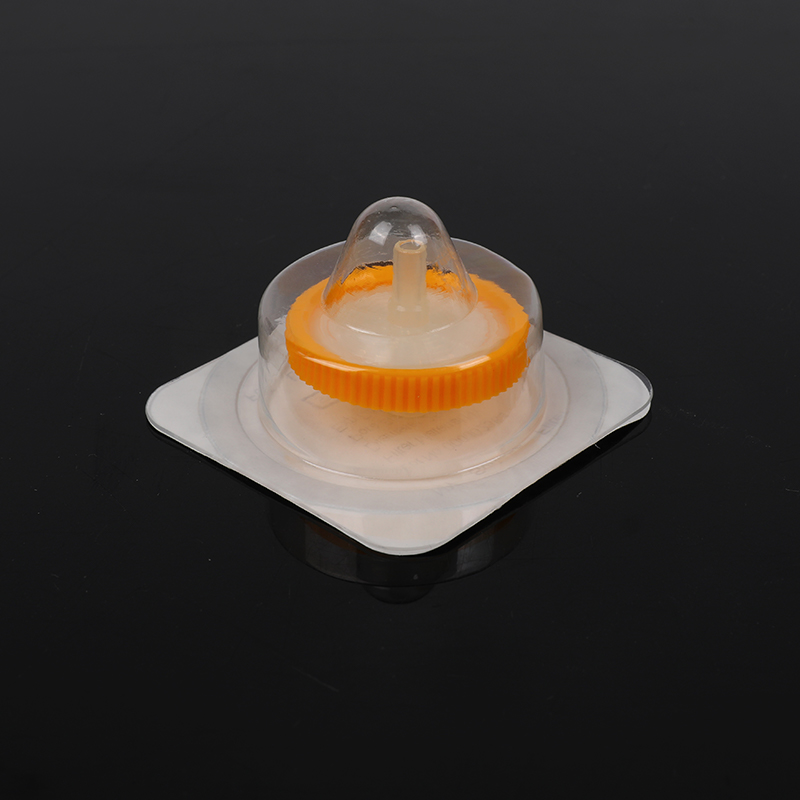When selecting the appropriate syringe filter for a specific laboratory filtration application, there are several key considerations to take into account:
Membrane Material: Syringe filters are available with different membrane materials such as cellulose, nylon, PTFE (polytetrafluoroethylene), PVDF (polyvinylidene fluoride), and others. Each material has specific chemical compatibility and retention properties. It's crucial to choose a membrane material that is compatible with the sample being filtered and does not interfere with the intended analysis.
Pore Size: Syringe filters come in various pore sizes, typically ranging from 0.2 to 5 microns. The pore size selection depends on the particle size of the contaminants to be removed. Smaller pore sizes are suitable for removing finer particles, while larger pore sizes allow for faster flow rates but may not retain smaller particles as effectively.
Sample Compatibility: Consider the chemical compatibility of the syringe filter with the sample being filtered. Some samples may contain solvents, acids, bases, or other aggressive chemicals that can degrade certain filter materials. Ensure the selected filter is resistant to chemical attack and will not contaminate the sample.

Filtration Volume and Flow Rate: The volume of the sample to be filtered and the required flow rate are important factors. Some filters are designed for small volumes and slower flow rates, while others can handle larger volumes and offer faster filtration. Ensure that the selected filter can accommodate the desired volume and provide an appropriate flow rate to meet the experimental needs.
Sterility Requirements: If the application requires sterile filtration, choose syringe filters that are specifically designed for sterile filtration. These filters are typically individually packaged and pre-sterilized, ensuring the removal of microorganisms from the sample.
Application Specific Considerations: Consider any additional requirements specific to your application. For example, if you are filtering sensitive biological samples, you may need a low protein-binding filter to prevent loss or adsorption of biomolecules. If filtering viscous samples, filters with a larger surface area or a prefilter may be suitable to prevent clogging.
By carefully considering these factors and matching the characteristics of the syringe filter to the requirements of the filtration application, researchers can ensure effective and efficient filtration while maintaining the integrity of their samples.

 English
English 中文简体
中文简体













